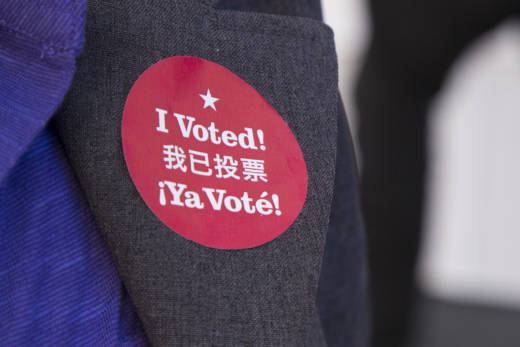As part of our election series “All Politics is Local,” we’re looking at some of the races that voters will find lower down on their ballots.
We hear plenty about the presidential election, but the candidates who win these less publicized races -- for things like BART board, school board and Superior Court judge -- could have a more direct, tangible effect on our lives and communities.
But not everyone who goes to the polls actually votes in every race.
According to a KQED analysis of data on voter turnout, just about everyone who voted in San Francisco in 2012 cast a ballot for president. But when it came to voting on down-ballot races -- contests for local office that generally appear lower on the ballot -- many opted out. Only seven in 10 San Franciscans voted for BART director in 2012. And just half voted in the judicial races in 2014.
To make sense of this trend, we sat down with Kim Alexander, director of the California Voter Foundation. She's urging voters to do their homework on those local contests.

